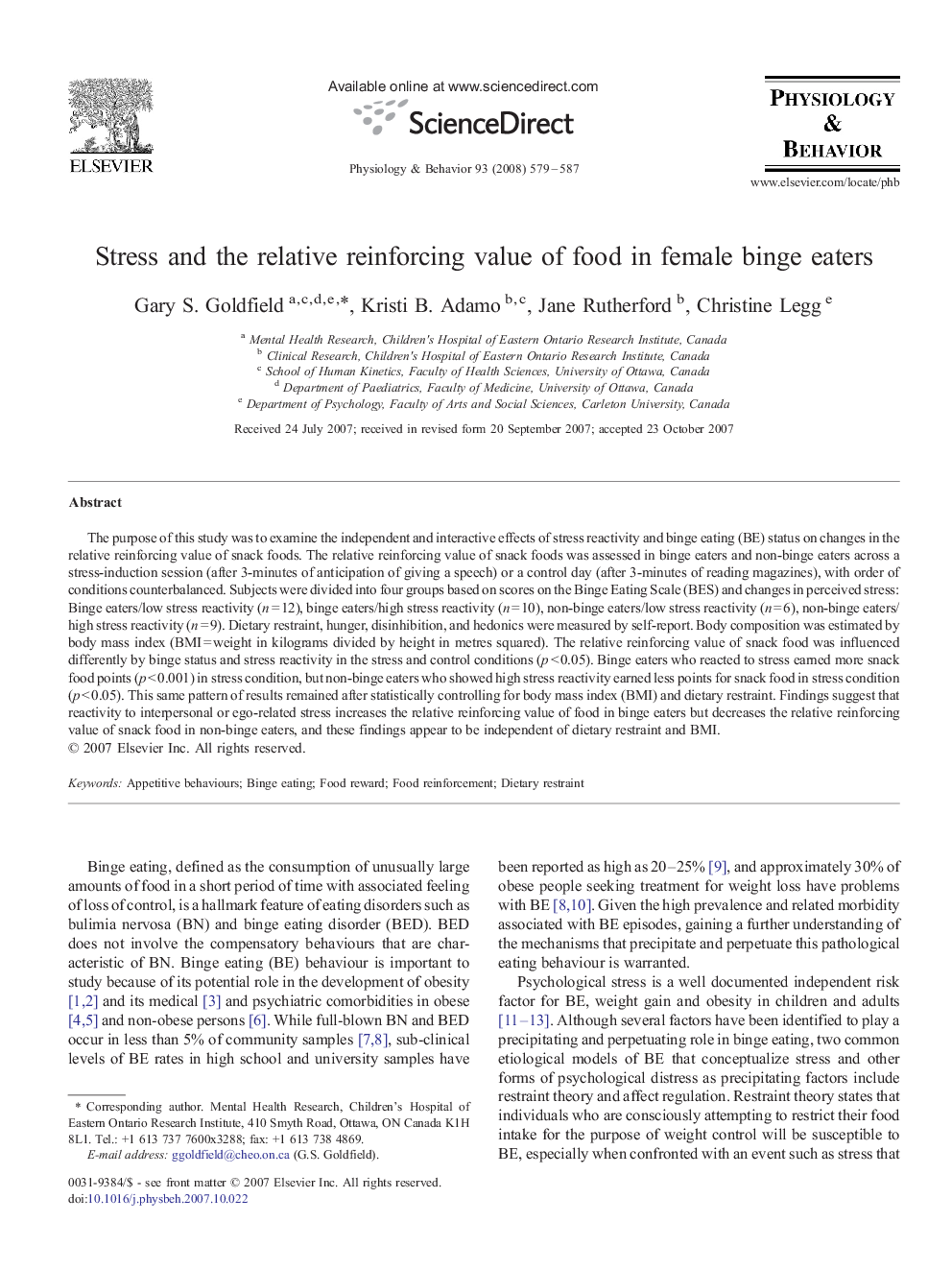| Article ID | Journal | Published Year | Pages | File Type |
|---|---|---|---|---|
| 2845695 | Physiology & Behavior | 2008 | 9 Pages |
The purpose of this study was to examine the independent and interactive effects of stress reactivity and binge eating (BE) status on changes in the relative reinforcing value of snack foods. The relative reinforcing value of snack foods was assessed in binge eaters and non-binge eaters across a stress-induction session (after 3-minutes of anticipation of giving a speech) or a control day (after 3-minutes of reading magazines), with order of conditions counterbalanced. Subjects were divided into four groups based on scores on the Binge Eating Scale (BES) and changes in perceived stress: Binge eaters/low stress reactivity (n = 12), binge eaters/high stress reactivity (n = 10), non-binge eaters/low stress reactivity (n = 6), non-binge eaters/high stress reactivity (n = 9). Dietary restraint, hunger, disinhibition, and hedonics were measured by self-report. Body composition was estimated by body mass index (BMI = weight in kilograms divided by height in metres squared). The relative reinforcing value of snack food was influenced differently by binge status and stress reactivity in the stress and control conditions (p < 0.05). Binge eaters who reacted to stress earned more snack food points (p < 0.001) in stress condition, but non-binge eaters who showed high stress reactivity earned less points for snack food in stress condition (p < 0.05). This same pattern of results remained after statistically controlling for body mass index (BMI) and dietary restraint. Findings suggest that reactivity to interpersonal or ego-related stress increases the relative reinforcing value of food in binge eaters but decreases the relative reinforcing value of snack food in non-binge eaters, and these findings appear to be independent of dietary restraint and BMI.
